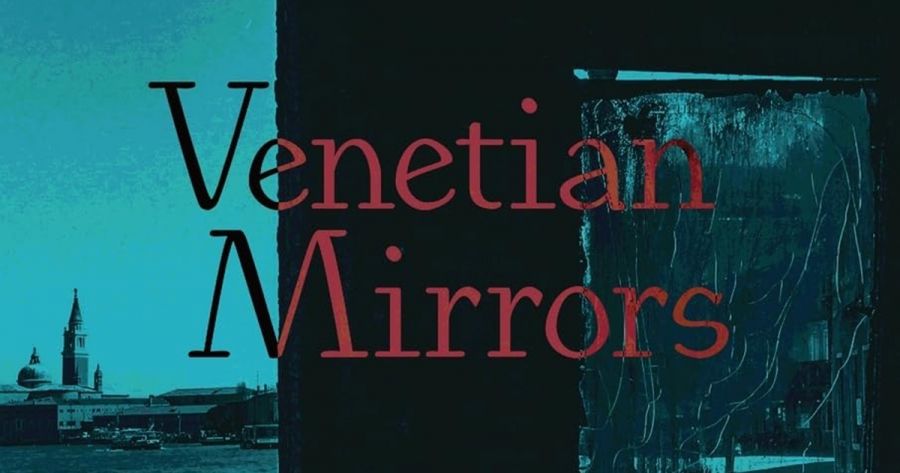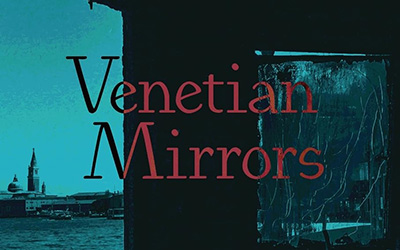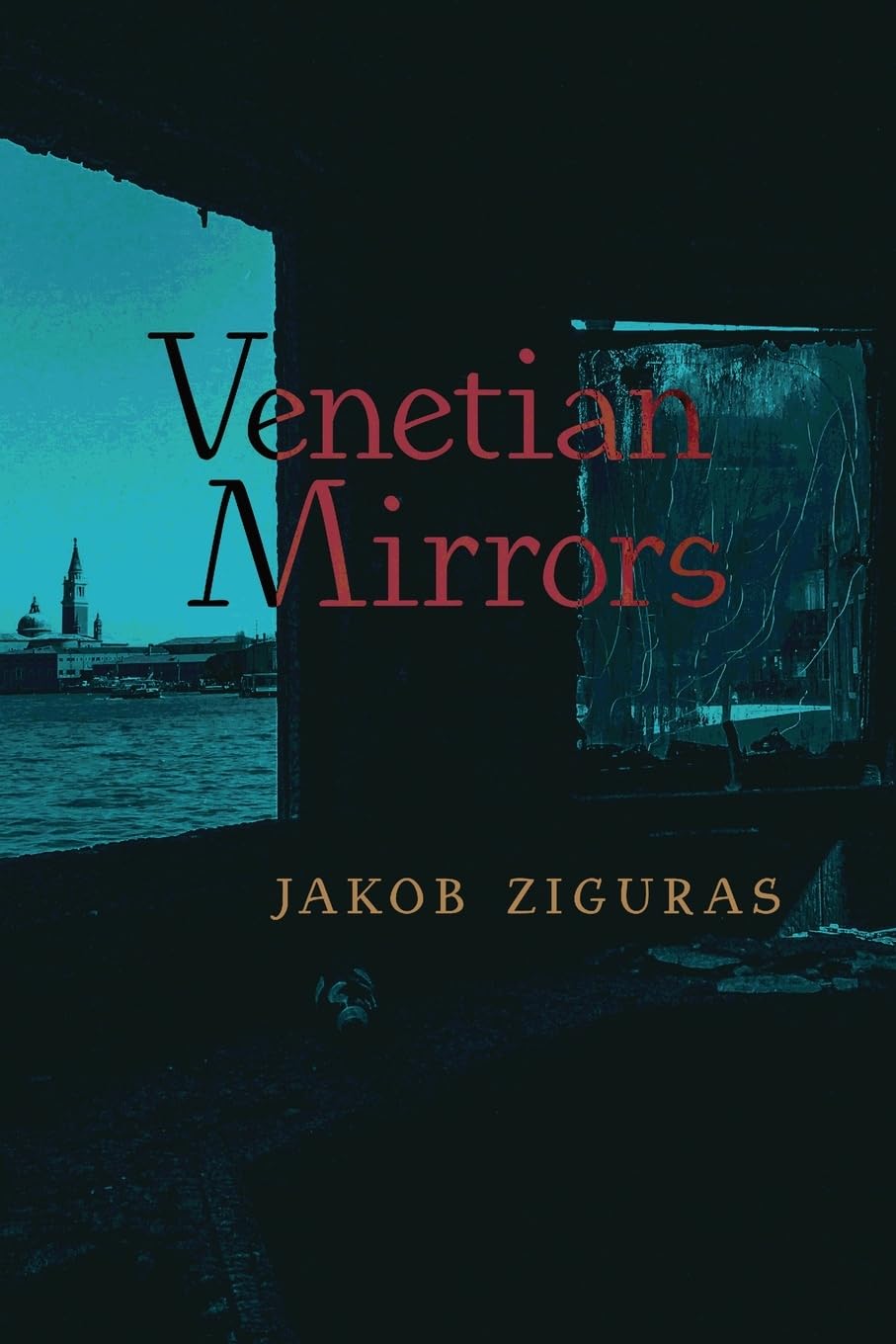
- Free Article: No
- Contents Category: Poetry
- Review Article: Yes
- Article Title: Poetic cartography
- Article Subtitle: The Platonic logic of Jakob Ziguras
- Online Only: No
- Custom Highlight Text:
Jakob Ziguras – widely published in Australian literary magazines and the recipient of prestigious poetry prizes – was born in Poland and came to Australia as a child with his parents in 1984. He studied fine arts before completing a doctorate in philosophy, which he teaches (he is also a translator). Much of this background is in evidence in his poetry. In recent years he has lived in his birthplace, Wrocław, Poland, translating contemporary Polish poets while working on his third book of poems, Venetian Mirrors.
- Featured Image (400px * 250px):

- Alt Tag (Featured Image): Sarah Day reviews ‘Venetian Mirrors’ by Jakob Ziguras
- Book 1 Title: Venetian Mirrors
- Book 1 Biblio: Angelica Press, US$40 hb, 322 pp
- Book 1 Cover Small (400 x 600):

- Book 1 Cover (800 x 1200):

- Book 1 Readings Link: https://www.readings.com.au/product/9781621389675/venetian-mirrors--jakob-ziguras--2024--9781621389675#rac:jokjjzr6ly9m
Ziguras’s books are impelled by philosophical questions both classical and theological. They are universal in scope rather than personal, they adhere to formal verse structures, and they eschew our national inclination to simplify the English language. These proclivities swim bravely against the tide. Quotes and allusions, especially in this latest work, are as plentiful as in T.S. Eliot’s The Waste Land. Venetian Mirrors demands much of its readers intellectually and imaginatively.
The creative enterprise of this beautifully produced, weighty collection is a kaleidoscopic response to the city of Venice, or a chorographic response, to use a term from poem ‘33’. The poems form a cultural, social, and numinous map of Venice as revealed through the author’s philosophical lens. We learn as much from the poems about fleeting and enduring humanness through myth, history, art, and faith as we learn about Venice. Poetic cartography is powerfully explored in the longer sequences of Ziguras’s wonderful second collection, The Sepia Carousel (Pitt Street Poetry, 2019).
This is not a descriptive travelogue but an interiorised, at times symbolist, point of view that, especially in the new work, does not adhere to chronological time or the personal identity of the narrator. The first-person pronoun is not used, except as an entity that is separate from the narrator; occasionally, the more amorphous ‘you’ stands in. Poems are linked by form, intricacy of language, and lens, rather than by narrative or space and time.
David Bentley Hart, in the Foreword, writes of ‘the Platonic logic of the book’. The striking, sometimes beautiful or sordid, images of Venice evoke themes of fleetingness and transience, playing out recurrent conceits of above/below, seeming/being. ‘This fish-bowl palace, with its shallow moat, / will fall at last before the wordless roar, / as beards of salt and foam reclaim the shore. / On other waters will that city float’ (‘Beauty Without Debt’).
The structure of Venetian Mirrors is intrinsic to the work’s connective thread: on the left of each double page, a tight metrical poem of four rhyming quatrains; on the right, its ‘reflection’, a prose poem consisting, with few exceptions, of each word from its formal partner, now completely rearranged, like the fragmentary images of Venice mirrored in its rippling canal waters. In the most memorable pairings, this is highly effective, producing an aural and imaginative dynamic that is intriguing and rewarding. At times, the more hard-worked pairs strain within the constraints of their form.
Some of the many impressive poems whose strength lies in their apparent effortlessness are ‘The Vast Abandon’, ‘A Profitable Franchise’, ‘A Minor Quay’, ‘The Lost Original’, ‘The Bees of Heaven’, and ‘Between These Shores’, a poignant work about refugees arriving by boat as coastguards patrol the night:
The dead are sleeping soundly just across
the dark canal, their reading lights turned off;
at 3am you might hear someone cough
or drily snore beneath their quilt of moss …… between these shores the vaporetti roam –
coast guards patrolling boats of refugees
escaping silently through cypress trees
towards a skyline carved from styrofoam.
And from its twin:
But by eating it die, to be like Someone that
lives silently in you, awake early before this dark
canal dead refugees are strewn across, from their
carved leaf boats. Stroll still, reading between
shores escaping a peeling skyline. This hour of
ornamental cypress, walks patiently through a park
In such examples, the twinned poems are memorable together and individually. It is intriguing to see and hear how poetic formality or freedom alters the collection of words that comprise a poem; the pairings cannot help but raise questions about what is gained or lost poetically, or how breath and consciousness are altered. Bentley tells us: ‘Ziguras produced a good deal of this rearrangement [the prose poems] by hand’ by cutting up the original ‘in William Burrough’s fashion’. The device is repeated 149 times. This is a programmatic approach to poetry, and risky, and I am not sure that quantity works in its favour. At times, the prose poems sound more formulaic than the strictly metrical works. It is an adventurous device which I suspect will divide readers.
Angelico Press, the publisher of this elegant book, based in Brooklyn, New York, is a Catholic press publishing works of literature, philosophy, history, art, and spirituality, and is dedicated to Catholic intellectual and cultural life. One of the endorsements on the cover-flap alludes to the book as a work of ‘devotional poetry’. This seems misleading. The collection is a work that casts its net wide, gathering up classical mythology and thinking, Judaeo-Christian allusions, and Renaissance painting and literature. Charon and Poseidon sit side by side with Lazarus, Christ, and Mary, and Rilke, Hegel, Ashbery, Stravinsky, to name a few. This is a work of devotional poetry: it is devoted to much, not in the least, words. This is poetry that revels in language.


Comments powered by CComment